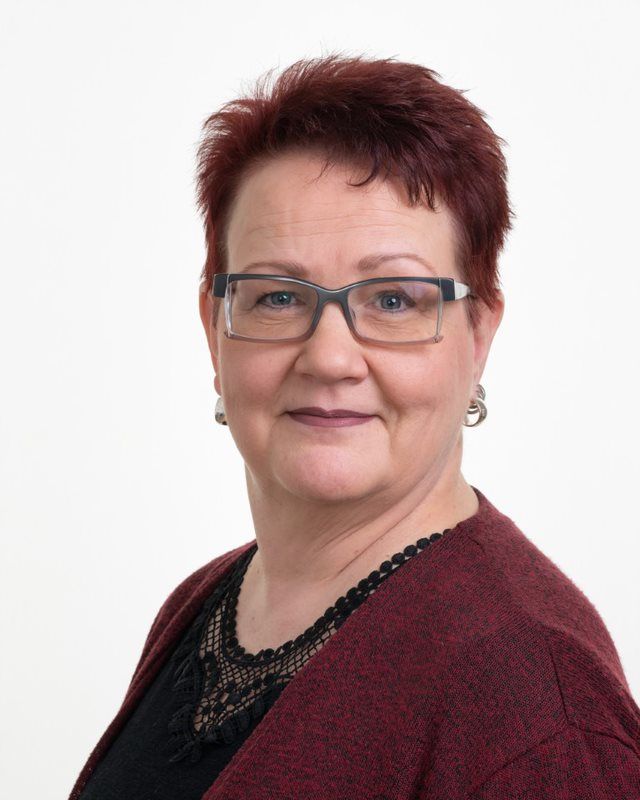Voices from the field
Riikka Holster
We are proud of the innovation projects spurred in Arctic technology
TESIM has started a series of interviews with representatives of the ENI CBC programmes to discuss the legacy and lessons learned from their implementation. As part of this series, we have talked with Riikka Holster, Head of the Managing Authority of the Kolactic CBC Programme.
THE LEGACY OF ENI CBC
How is the process of closing the programme going?
All projects ended by the end of June last year, we made all final payments, and are now working on the closure of the programme. Already last autumn we agreed on a division of tasks between the staff members still working in the Managing Authority – which bears the main responsibility for the final report – and the Swedish and Norwegian Branch Offices. This takes into account all changes in the staff of the MA, including the fact that I am leaving the programme soon. In addition to the final report, the MA has responsibilities related to the financial closure of the programme, as well as archiving the monitoring system and the programme documentation. We’ve kept this in mind and created a To-Do List until September of this year. It looks like we are keeping up to the schedule.
Looking back at the implementation, where would you say the programme has made the biggest contribution to the regions that participated in it?
In terms of thematic objectives, environmental protection and climate change adaptation and mitigation have been the most popular fields of activities during the programme implementation. Just a couple of examples, we mapped nearly 200 kilometers of watercourse in preparation for ecological restoration and restored 74 destroyed spawning areas for fish. The second very successful area has been business and SME development. We are particularly pleased with the active participation of private companies in the projects. According to the ex-post evaluation, 14% of all project partners in Kolarctic projects have been enterprises, and altogether, projects involved 164 companies as the final beneficiaries. We are also proud of the innovations made in the projects, particularly in the field of Arctic technology, as well as our large infrastructure projects that were successfully implemented despite the challenges related to COVID-19 and the war.
If you were to speak about the legacy left by the programme and the CBC in general, what would you say?
The programme is leaving a legacy of promoting environmental sustainability and fostering continued cross-border cooperation and long-lasting partnerships. These have been highlighted by the project beneficiaries in many interviews conducted by the ex-post evaluators. Furthermore, the development of innovations and sharing of knowledge and know-how between the project partners constitutes a significant legacy of the programme.
You mentioned the ex-post evaluation that was recently presented. Was there anything in the evaluation report that surprised you, either positively or negatively?
Basically, there were no surprises, which was surprising in itself. We knew that the programme performed well despite the big challenges met, however, I was good to learn how well the programme actually met the goals set for it, exceeding its target values.
What do you think about narrowing down the thematic scope of the programme, as suggested by the ex-post evaluators?
To be honest, I have been thinking about that during the implementation, and I would love to see a more focused programme. I would also vote for narrowing the objectives.
Looking at the current situation where there is no Kolarctic programme for the 2021-2027 period, what is the impact of the disruption and also of the cancellation of the Interreg NEXT programme?
The disruption significantly affected all projects, requiring them to adapt their plans, objectives, partnerships, and budgets. The biggest harm has been that not all planned activities could be realized, and not all objectives set for the projects could be met. A significant amount of expertise was lost with the exclusion of Russian partners, who had expertise that would have been beneficial for future cooperation. The cancellation of the NEXT programme means a long break for the Northern regions in cooperation with Russia. Over the past 30 years these regions built and developed truly joint programme structures, which will need to be rebuilt from scratch if and when cooperation resumes.
What efforts are being made to reorient and enable partners who used to cooperate in the Kolarctic CBC programme to join the Interreg programmes operating in their regions?
We have been quite active in promoting the possibilities of other Interreg programmes. We arranged joint capitalization events with the Karelia CBC programme and informed project partners about existing cooperation programmes. We know about several project partners that applied for and received financing from Interreg Aurora or Interreg Northern Periphery and Arctic.




















